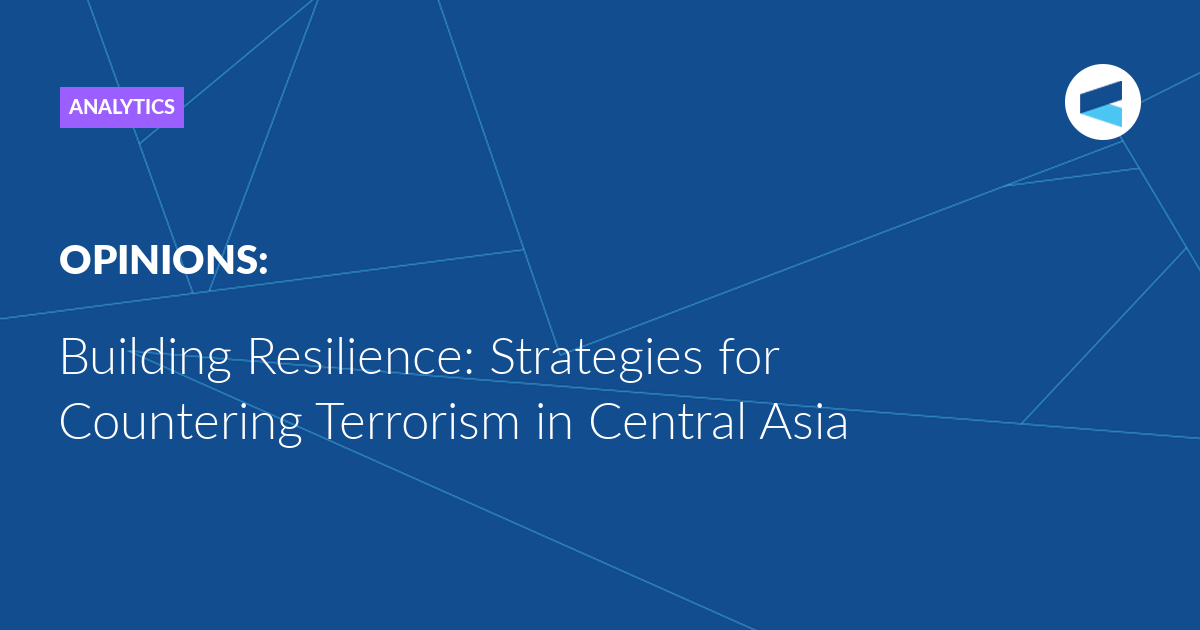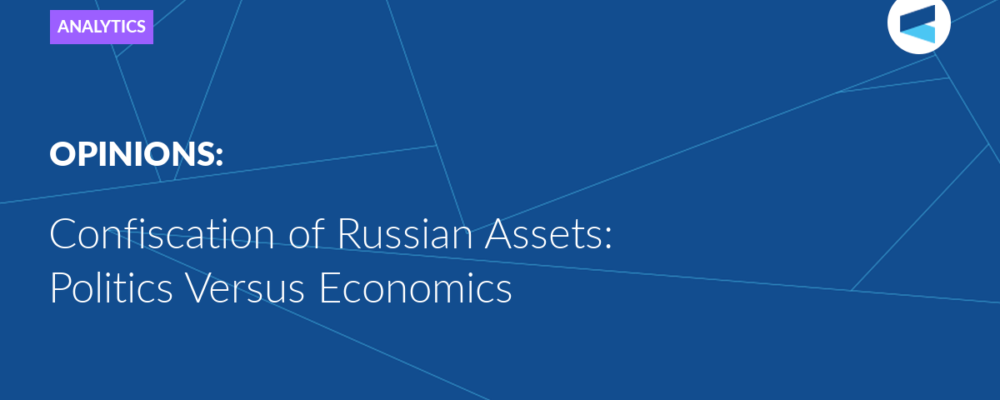Terrorism poses a serious threat to the peace and stability of any country. It is a challenge that requires collective action, as it knows no boundaries and has no values or principles. Whatever its outer garb, the innate objective of any form of terrorism reflects enmity towards humankind in general. In combating terrorism and extremism, it is critical to recognise the formidable barriers to establishing a regional or multilateral framework to doing so effectively, writes Dr Pravesh Kumar Gupta, Associate Fellow, Vivekananda International Foundation, for the 4th Central Aian conference of the Valdai Discussion Club.
The tendency of some nations to prioritise their security interests over those of others is a significant hurdle that must be overcome. Every nation, regardless of its size, plays a pivotal role in the collective effort to prevent the glorification or support of terrorism by any state. This role includes the crucial responsibility of identifying and isolating individuals or groups that provide support, encouragement, sanctuary, safe haven, or any form of assistance to terrorists. By taking these necessary measures, each nation can significantly contribute to the global fight against terrorism.
Tracking and monitoring activities that could lead to terrorism and extremism is paramount to preventing its proliferation. Equally significant is the pursuit of legal action against those involved in such activities. This ensures individual accountability, a crucial aspect of collectively combatting terrorism. These efforts are essential in maintaining the security and safety of people and preventing any form of violence or conflict that may arise from terrorism.
The Case of Central Asia
Central Asia has been facing challenges related to terrorism and extremism, which are directly attributed to its secular outlook and progress toward modernisation. Radical forces have been attempting to destabilise the region for many years. Extremist ideas, often disseminated through online platforms, target vulnerable communities and worsen tensions, ultimately posing a threat to regional stability. The rise of religious extremism, particularly in the form of Islamist movements, is a persistent challenge in the region. Groups like the Islamic Movement of Uzbekistan (IMU) and Hizb ut-Tahrir use their extremist ideologies to influence the people. Due to an effective counter-terrorism initiative, they have been compelled to shift their bases out of the region; however, they remain active in exploiting the region’s vulnerabilities to achieve their objectives.
The Islamic State’s Khurasan Province (ISKP) has drastically expanded its propaganda apparatus in recent months, releasing a steady flow of online print, audio, and video content. It is pushing to build support, fundraise, and recruit in Central Asia, particularly Uzbekistan and Tajikistan. This outreach campaign runs through ISKP’s Al-Azaim Foundation for Media Production, which has formed Uzbek and Tajik language wings. Youth radicalisation in Central Asia is another critical issue. ISKP primarily uses the Telegram messaging application to build its web of discussion channels, supporting propaganda creators, and its recruitment and fundraising operatives. In order to appeal to Central Asians, ISKP has ramped up its criticisms and threats toward regional governments.
However, the region’s challenges are not singular in nature; they are influenced by global trends. Changes in the global order, such as shifts in power and geopolitical realignments, have exerted significant pressure on the region. Furthermore, the rise of competition among great powers and the complexities of transnational threats, such as terrorism and organised crime, further intensify these challenges. Simultaneously, Central Asia’s unique security and developmental landscape are shaped by its particular features, including historical legacies, ethno-cultural diversity, and geopolitical significance.
Central Asian countries have increased their defence budgets due to changing security dynamics. Kazakhstan’s military spending increased to 1,618 million USD in 2021, Kyrgyzstan’s was $125 million in 2021, and Tajikistan spent $82 million on its military in 2021. Uzbekistan’s military spending increased by 2,560.79% between 2003 and 2018, from $54 million to $1,440 million. Despite this significant rise, they still require technological expertise to develop their defence capacities.
Russia’s Role
Russia’s role as a security partner in Central Asia cannot be underestimated. Moscow has assisted in maintaining stability and security in the region, both bilaterally and at the institutional level. Cooperation with Central Asian nations has been critical in addressing the non-traditional threats posed by terrorist groups and transnational criminal organisations. They have a shared understanding of the challenges and necessary instruments to combat these threats. Russia has established several regional military bases and stations, including Kant Air Base, the 338th Naval Communication Centre, the 954th torpedo testing range, and a seismographic station in Kyrgyzstan. The Russian 201st Military Base in Dushanbe and the Okno space surveillance station are also present in the region.
The Collective Security Treaty Organisation (CSTO) plays a crucial role in ensuring regional security and stability. It is committed to promoting regional security and stability, territorial integrity, and sovereignty. It also focuses on addressing issues such as countering terrorism, extremism and illicit drug and weapons trafficking. In early 2022, during the unrest in Kazakhstan, the CSTO showed unprecedented solidarity by sending approximately 2,500 troops to the affected member country, demonstrating its commitment to maintaining peace and stability in the region.
The CSTO’s peacekeeping mission in Kazakhstan was a decisive moment for the organisation, representing its willingness to operate as a political platform and a force capable of employing military and law enforcement resources in joint operations. The mission was short, running from January 6 to 19, 2022, and its personnel were immediately repatriated upon completion. This demonstrated the organisation’s firm commitment to efficacy and reliability, showing member states and other stakeholders that it is a trustworthy partner that will act decisively and withdraw promptly once its objectives have been achieved.
Despite the existing framework to counter these threats, it is crucial to understand Central Asia’s specific needs and desires regarding its security concerns. This will allow for the expansion of security cooperation in a targeted and effective manner. Historically, Moscow has played a vital role in providing security assistance to these nations. In order to combat radical forces, it is essential to revive this traditional role and provide support to help the Central Asian countries develop their defence systems. Not only will this reduce the burden on Russia, it will also decrease external influence in the region. By strengthening the security capabilities of these countries, we can work together to create a safer and more stable environment for everyone.
India and Central Asia
India’s bilateral relations with the Central Asian region have witnessed a notable upward trajectory in recent years. Despite this positive trend, trade and economic relations have remained minimal due to a lack of connectivity. The security cooperation between India and Central Asia has proven to be relatively effective due to their shared concerns, which has resulted in productive engagement in this area. India has established a counter-terrorism working group with almost all Central Asian countries, which serves as a platform for a regular and meaningful dialogue on security issues. This dialogue occurs through various channels, including high-level talks between the National Security Advisors of India and Central Asia. Furthermore, there has been a noticeable increase in defence cooperation. India and Central Asia are working closely through organisations such as the Shanghai Cooperation Organisation (SCO) and the Regional Anti-Terrorist Structure (RATS). These efforts underscore the shared commitment of India and Central Asia to combating terrorism and maintaining regional stability.
While addressing the Plenary Session of the 21st meeting of the SCO Council of Heads of State hosted by Tajikistan through video conferencing, PM Modi highlighted how Central Asia has been a “bastion of moderate and progressive cultures and values” and “traditions like Sufism have flourished here over the centuries and spread throughout the region and the world.” Based on this “historical heritage of Central Asia, SCO should develop a common template to fight radicalisation and extremism.” The PM proposed that SCO should work to “develop a strong network” between “moderate, tolerant, and inclusive institutions and traditions associated with Islam” in SCO countries.
India keeps highlighting the importance of the collective effort to fight against terrorism in any form or manifestation. The technology in the hands of terrorists, such as drones used for the cross-border smuggling of weapons and narcotics, is an emerging threat. India has advocated for creating effective mechanisms within the SCO Regional Anti-Terrorist Structure (RATS) to counter terrorist financing, indicating its commitment to bolstering regional security cooperation.
Conclusion and Way Forward
The situation demands urgent and resolute action to eradicate this scourge. There is no room for faltering in determination. It is time for a united effort to demonstrate collective will and strength to overcome this challenge. Only then can a brighter and safer future be paved for current and future generations. Addressing Central Asia’s security and developmental challenges requires a multifaceted approach involving regional cooperation, capacity-building initiatives, and constructive engagement with external partners. Third countries can play a crucial role in strengthening stability by supporting efforts to address root causes of instability, promoting inclusive growth, and fostering economic development. Moreover, initiatives such as the Shanghai Cooperation Organisation (SCO) and the Eurasian Economic Union (EEU), Central Asian Regional Information and Coordination Centre (CARICC), and CSTO serve as platforms for enhancing security cooperation and facilitating dialogue among regional stakeholders.
In order to make institutions more efficient in countering security issues, some crucial reforms are required. To enhance the ability of the Regional Anti-Terrorist Structure (RATS) to analyse and evaluate emerging terrorist threats, trends, and patterns, there is a need to invest in advanced analytical tools and technologies. Furthermore, RATS’ mandate must be expanded to address a broader range of security challenges beyond terrorism, such as cyber threats, transnational organised crime, and drug trafficking. This will help RATS reflect on the evolving security landscape in Central Asia.
It is recommended that decision-making procedures within the SCO should be simplified to ensure a quicker response to terrorist threats and smooth coordination among member states. To achieve this, a unified list of terrorists, separatists, and extremist organisations that are banned in the SCO region should be created as soon as possible, as proposed at the SCO Samarkand Summit. Additionally, it is crucial to establish robust monitoring and evaluation mechanisms to assess the impact of SCO counter-terrorism efforts, identify areas for improvement, and ensure accountability among member states.
It is imperative to invest in capacity-building programmes and training initiatives to significantly enhance the counter-terrorism capabilities of CSTO member states, particularly in areas such as intelligence analysis, border security, and counter-radicalisation efforts. Rapid response units must be established within the framework of the CSTO, specifically trained and equipped to respond swiftly and decisively to terrorist threats and incidents in member states. It is essential to strengthen cooperation on cybersecurity among CSTO member states to prevent terrorist groups from exploiting digital platforms for recruitment, propaganda, and fundraising purposes. Failure to take these measures could result in grave consequences for the security of the CSTO member states and the wider region.
A multifaceted approach with social, economic, educational, and security measures is required to tackle the problem of youth radicalisation. Investment in vocational training, entrepreneurship programs, and job creation initiatives can provide alternatives to extremist recruitment. Counter-narratives and digital literacy programmes can help youth resist radicalisation efforts.
The Valdai Discussion Club was established in 2004. It is named after Lake Valdai, which is located close to Veliky Novgorod, where the Club’s first meeting took place.
Please visit the firm link to site






